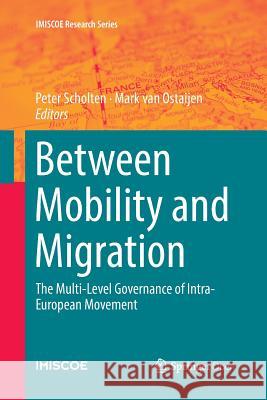Between Mobility and Migration: The Multi-Level Governance of Intra-European Movement » książka
topmenu
Between Mobility and Migration: The Multi-Level Governance of Intra-European Movement
ISBN-13: 9783030085933 / Angielski / Miękka / 2019 / 270 str.
Kategorie:
Kategorie BISAC:
Wydawca:
Springer
Seria wydawnicza:
Język:
Angielski
ISBN-13:
9783030085933
Rok wydania:
2019
Dostępne języki:
Numer serii:
000331418
Ilość stron:
270
Waga:
0.39 kg
Wymiary:
23.39 x 15.6 x 1.47
Oprawa:
Miękka
Dodatkowe informacje:
Wydanie ilustrowane











